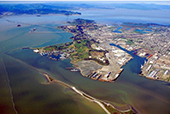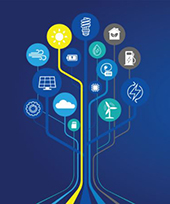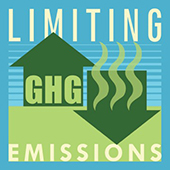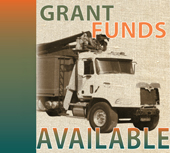|
|

|
|
|
|
November 2020 l Volume 2020-4
|
|
|
|
|
|
|
In this issue you'll find articles about this year's record-breaking wildfire season and the latest Air District wildfire initiatives, an entertaining upcoming webinar on climate-friendly cooking and the Richmond-San Pablo community air monitoring plan. Other articles cover a recent virtual Climate Tech Marketplace event and the Air District's statement on the federal rollback of methane emission rules. A summary of current grant opportunities is also included.
|
|
|
|
|
|
|
|
|
|
|
|
|
|
Air District Sets Records for Spare the Air Alerts in 2020
|
|
| | |
|
During this fall’s catastrophic wildfire season, the Air District broke the Bay Area record for consecutive Spare the Air Alerts and for the overall number of Spare the Air Alerts in a given calendar year. In August and September, the Air District issued 30 consecutive Spare the Air Alerts, far exceeding the previous high of 14 days during the Camp Fire in 2018. And the overall number for the year so far is 49, which exceeds the previous record total of 46 in 2017.
This year’s wildfire season began with a dramatic and unusual lightning storm on August 17 that precipitated a multitude of fires in eight of the nine Bay Area counties. It extended through an ominous phase when massive blazes throughout northern California and the entire Pacific Northwest caused skies to darken and turn Halloween-orange. And so far, it has given rise to four of the largest five fires in California history - including the August Complex Fire in the Mendocino Forest, which has burned over a million acres.
This intensification of wildfire activity in recent years is a testament to the ongoing effects of climate change, and the Air District is continuing to expand its Wildfire Air Quality Response Program to meet these challenges in the future.
As part of this initiative, the agency is developing a Wildfire Prevention Chipping Pilot Program, slated to open later this fall, that will provide a non-polluting means of disposing of flammable and potentially wildfire-fueling vegetation.
The Air District also sponsored AB 836 with Assembly Member Wicks, which provides $5 million in state funding for ventilation retrofits to establish clean air centers for vulnerable populations. In a concurrent effort, the agency is partnering with the Red Cross to pilot a program in the Bay Area to store and deploy portable air filtration units to evacuation centers and sheltering facilities during wildfire disasters.
And finally, the unfortunate convergence of this wildfire season with the shelter-in-place restrictions of COVID-19 – which can make visiting a public clean air shelter problematic – points to the need to help people protect air quality in their own residences. As a result, the Air District is exploring a new grant program to fund high-efficiency particulate air filter, or HEPA, units that would allow income-qualified residents to create “clean rooms” at home.
These recent initiatives will augment prior elements of the Wildfire Air Quality Response Program as the Air District works to prevent, prepare for, and respond to the challenges presented by wildfires in seasons to come.
|
|
|
|
|
|
|
|
|
|
|
|
Air District Sponsors Food and Climate Webinar
|
|
| | |
|
As part of an ongoing series highlighting the links between our food choices and climate change, the Air District is sponsoring a webinar on Sunday, November 1, entitled Holiday reFresh: Local Chefs Share a World of Flavors and Recipes to Curb Climate Change. The food we eat has tremendous impacts on both our health and the health of the planet.
The world’s food system is responsible for about one-quarter of all the greenhouse gases emitted each year - with about half of that total produced by livestock, such as meat and dairy cows. The University of California at Berkeley has estimated that nearly 20 percent of the average Bay Area resident’s carbon footprint comes from food.
Fortunately, many of the same foods that are good for our bodies are also good for the environment.
Join Holiday reFresh for a one-hour live online cooking demo featuring a diverse selection of popular Bay Area chefs cooking plant-based holiday meals that represent their cultural backgrounds. Guests will learn how to use plant-based ingredients and reduce food waste, while being introduced to the benefits of induction cooktops. Those that attend will get a copy of all the recipes prepared during the event.
Go to this web page to register for this event, and stay tuned for further webinars in the series.
The full series on climate friendly food will run from Fall 2020 through Winter 2021, through a partnership with the non-profit organization Acterra.
For more information and additional resources, see Acterra’s Healthy Plate – Healthy Planet website.
|
|
|
|
|
|
|
|
|
|
|
|
Air District and Richmond-San Pablo Community Members Release First-of-its-Kind Air Monitoring Plan
|
|
| | |
|
In September, the Air District and the Richmond-San Pablo community released the Path to Clean Air, a Richmond-San Pablo community air monitoring plan. This is the first air monitoring plan to be developed with co-leadership from a community. The Air District worked alongside a committee whose members included community organizers, environmental justice advocates and neighborhood groups - as well as education, public health, government and industry stakeholders - in the Richmond-San Pablo area to develop the community air monitoring plan.
Together, the group defined the geographic boundary for air monitoring, the air pollution sources of concern and the air monitoring objectives. The air monitoring study area includes Richmond, San Pablo, North Richmond, Montalvin, parts of Tara Hills, El Sobrante and the Richmond Annex.
The plan is a result of state law AB 617, which requires reduction of air pollution levels in selected communities with higher than average air pollution burdens.
Richmond-San Pablo’s approximately 150,000 residents are regularly exposed to emissions from a high density of air pollution sources near their homes, including large industrial facilities, freeways, rail yards, a marine port and many smaller sources. People living in the Richmond-San Pablo area experience more asthma emergency room visits, higher rates of cardiovascular disease, greater unemployment, lower educational attainment, higher housing cost-burden and lower life expectancy than in other areas of Contra Costa County.
This community air monitoring plan will provide vital information to the Air District and the community as they continue to work together to reduce these air quality and public health disparities.
Now that the Richmond-San Pablo Community Air Monitoring Plan is completed, the Air District will provide regular updates about ongoing monitoring results. This information will guide the development of a Community Emission Reduction Plan, as well as other ongoing air quality improvement efforts outside of the AB 617 process.
|
|
|
|
|
|
|
|
|
|
|
|
Air District Hosts Virtual Climate Tech Marketplace
|
|
| | |
|
On October 22, the Air District hosted a virtual Climate Tech Marketplace event, entitled Cutting-Edge Governments: Leading Investment in the Green Revolution. The event’s keynote speaker was Mariana Mazzucato, an author and economist who helped shape the Green New Deal. She addressed the roles the public and private sectors must take to ensure that growth is more innovation-led, inclusive and sustainable.
The free event featured interactive panel discussions on public sector innovation, equitable access to clean energy and software solutions for climate resilience.
Attendees had an opportunity to speak and network during the live technology showcase with different sectors and technologies that benefit the climate and spur economic growth.
The event allowed representatives of local and state government, energy efficiency and renewable companies, non-profits, universities, utilities, transportation, bankers and venture capital firms to connect with new climate technology providers as well as early adopters and learn how government and climate technologies can work together to accelerate innovative solutions.
For more information about the Climate Tech Marketplace, visit this website.
|
|
|
|
|
|
|
|
|
|
|
|
Air District Condemns Trump Administration Rollback of Methane Rule
|
|
| | |
|
In August, the Air District’s Executive Officer, Jack Broadbent, issued a statement regarding the Trump Administration’s plans to lift controls on the release of methane. “In a profoundly misguided move, the Trump Administration has chosen once again to curb climate protections by rolling back critical controls on methane, a potent greenhouse gas. The administration’s consistent disregard for public health and penchant for governance by chaos is unfortunately very much on-brand. This willful contempt for science and common sense threatens to create a climate calamity by fueling more catastrophic wildfires and propelling harmful air pollution increases. As the world moves on to greener fuels and progressive climate actions, the Trump Administration is stuck in reverse. The Bay Area Air Quality Management District has been diligently working to reduce methane emissions in the region through a suite of new regulations and will challenge this decision in order to protect the health of all Bay Area residents.”
|
|
|
|
|
|
|
|
|
|
|
|
Air District Offers Millions in Grants
|
|
| | |
|
The Air District administers a number of grant funding programs that offer incentives for clean air projects. Grant Funding Programs Open Now and Coming Soon
Grant programs for Bay Area businesses and public agencies:
Equipment/Engine Replacement/Repower or Conversion, and Infrastructure
- Carl Moyer Program - $12 million is available for eligible projects that upgrade or replace on-road vehicles, school buses, transit buses, off-road and agricultural equipment, marine equipment, and locomotives. Applications are being accepted on a first-come, first-served basis until all funds are awarded. www.baaqmd.gov/moyer
- Community Health Protection Grant Program - $28 million is available for eligible projects that reduce toxic air emissions and ozone-forming pollutants from mobile and stationary sources by replacing old, high-polluting vehicles and equipment. Priority is given to projects in the AB 617-identified communities of West Oakland, Richmond-San Pablo, East Oakland/San Leandro, Eastern San Francisco, Pittsburg-Bay Point area, San Jose, Tri-Valley area, and Vallejo. Community input will play an important role in guiding the Air District’s outreach and process for identifying priority projects. Applications are being accepted on a first-come, first-served basis until all funds are awarded. www.baaqmd.gov/ab617grants
- Goods Movement Emission Reduction Program - About $20 million is available for equipment replacement and fueling infrastructure projects to reduce air pollution from freight movement activities in California. Eligible equipment for this program includes diesel-fueled trucks with manufacturer Gross Vehicle Weight Rating (GVWR) 16,001 lbs and greater; freight locomotives; cargo-handling equipment, such as forklifts, yard trucks and rubber-tired gantry cranes (RTG); transportation refrigeration units (TRU); insulated cold-storage trailers at grocery retail stores; and berth electrification and emissions capture and control equipment at ports. The program also funds a variety of hydrogen fueling, battery-charging and electric plug-in project options to assist owners of freight movement equipment in incorporating zero- or near-zero-emissions equipment into their fleets. www.baaqmd.gov/goods
- Lower-Emission School Bus Program - Funding is available for public school districts, Joint Powers Authorities (JPAs), and contracted fleets in the Bay Area for bus replacements, engine repowers or electric conversions, natural gas tank replacements, and electric charging and alternative fueling infrastructure projects. Applications are being accepted on a first-come, first served basis until all funds are awarded. www.baaqmd.gov/lesbp
- Volkswagen NOx Mitigation Program - Zero-Emission Transit and Shuttle Buses - Up to $10 million is available to owners of bus fleets that operate in California to support early adoption of zero-emission bus technologies to reduce harmful exposure for the state’s most sensitive populations. This solicitation is open and accepting applications for transit and shuttle buses on a first-come, first-served basis. http://vwbusmoney.valleyair.org/
- Volkswagen NOx Mitigation Program - Zero-Emission Class 8 Freight and Port Drayage Trucks - This category is intended to support the expansion of zero-emission truck availability in the heaviest weight class. Vehicles eligible for replacement include Class 8 freight trucks (including waste haulers, dump trucks and concrete mixers) or their engines (2012 model year and older). This category is currently oversubscribed; however, the program will remain open and applications will continue to be accepted in order to generate a back-up list of applications. Projects placed on the back-up list will only be considered if returned or additional funds become available. https://xappprod.aqmd.gov/vw/zero-emission.html
- COMING SOON! Other project categories funded by Volkswagen NOx Mitigation Fund - Solicitations for light-duty electric-vehicle infrastructure projects are anticipated to open in early 2021, and the second solicitation for zero-emission freight and marine projects is anticipated to open in early 2021. Visit https://www.californiavwtrust.org/ to learn more about these opportunities and sign up for email alerts.
Vehicle Trip Reduction Grant Program - up to $4M
-
Clean Mobility Projects -Funding is available to public agencies to co-fund trip reduction projects in the Bay Area that have been awarded either a Clean Mobility Project Voucher under the Clean Mobility Options Voucher Pilot Program or an Implementation Grant under the Sustainable Transportation Equity Project. https://www.cleanmobilityoptions.org/ and https://ww3.arb.ca.gov/msprog/lct/opportunitiesgov/
- COMING SOON! Bicycle Facilities - This program is scheduled to open in late 2020. Public agencies are eligible to apply for grants for projects that install new bikeways and bicycle parking. Applications will be accepted on a first-come, first-served basis, until all funds are awarded. www.baaqmd.gov/tripreduction
Loan Guarantees and Low-Interest Financing
- Climate Tech Finance Program - Subsidized financing is available to help Bay Area facilities adopt emerging technologies that reduce greenhouse gas emissions. Public facilities can apply for loans ranging from $500,000 to $30 million, up to 30-year terms. Small businesses can apply for loan guarantees up to 90%. This program is open and accepting applications now. www.baaqmd.gov/ctf
Grant programs for Bay Area residents:
- Light-Duty Vehicle Replacement - The Clean Cars for All Program is open to all income-qualified Bay Area residents. The program provides varying incentives to retire older, high-polluting vehicles and replace them with newer, cleaner vehicles or with alternative transportation options (e.g. Clipper card). Eligible vehicles for purchase or lease include hybrid electric, plug-in hybrid, or electric vehicles. This program is open and accepting applications now. www.baaqmd.gov/cleancarsforall
- Passenger Car and Light-Duty Truck Retirement - The Vehicle Buy Back Program pays Bay Area residents $1,200 per vehicle to turn in their operable, registered, model year 1997 and older passenger car or light-duty truck for scrapping. www.baaqmd.gov/vbb
|
|
|
|
|
|
|
|
|
|
|
|
Air District Events
|
|
This winter, the Air District and Spare the Air will be participating in the following drive-through outreach event.
November-January
Christmas in the Park (drive-through event) - San Jose
November 27, 2020 - January 3, 2021
|
|
|
|
|
|
|
|
|
|
|







